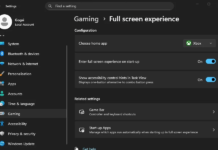Esports company ESL Gaming has launched its first dedicated mobile esports league. The result of a partnership between ESL and wireless technology firm Qualcomm, the Snapdragon Pro Series will be spread across six global regions and offers participants $2 million in prizes.
For ESL, the league is the culmination of years of mobile esports activity. From its roots in the console and PC esports scenes, the company started branching into mobile gaming in 2017 via one-off events such as the ESL Mobile Open. Over the past few years, ESL has run tournaments for popular mobile titles such as Clash Royale, Wild Rift and PUBG Mobile.
Thus far, both ESL and Qualcomm have declined to list the specific mobile games that will be contested in the Snapdragon Pro Series. “Not every region is going to have the same titles,” said Qualcomm head of marketing for gaming and graphics Patrick Perkins. “They’re going to be regionally relevant, instead of force-feeding something into, say, Europe.”
Qualcomm, a chipset manufacturer, has historically been more of a b2b brand, but it is currently involved in a push toward a b2c model. Its decision to join ESL’s mobile esports league as a title sponsor is part of this initiative. “If you’re talking esports, the Intel Extreme Masters has been a really successful partnership for Intel, right?” Perkins said. “No one goes to Best Buy and says, ‘I’d like one Intel, please.’ But they know that that is an ingredient in your PC that is going to make it better. That’s what we’re trying to do with [Qualcomm gaming sub-brand] Snapdragon.”
Qualcomm and ESL declined to provide specific details about their financial partnership, though Perkins said it was a multi-year, multi-million-dollar agreement.
“We want this to be a long-term sustainable program; we want it to be significant with the prize money,” said Dave Durnil, global head of gaming and Snapdragon Studios at Qualcomm. “Qualcomm is all-in on gaming, and we’ve been very heavily active in esports as a device manufacturer, building out dedicated gaming devices for esports, to features and capabilities, to actually sponsoring a lot of the major esports leagues. We feel now is the right time to partner with ESL.”
Esports organizations have already started to put more resources into mobile esports, but ESL’s announcement is likely to accelerate this activity even further. “It’s good to hear about this, from the perspective of a professional esports team,” said Jordan Sherman, CEO of the esports organization Immortals, which has invested heavily in the mobile esport Wild Rift. “The more infrastructure, and the more opportunities there are for players and tournaments and events and prize pools — it generates more interest and gives us an opportunity to participate on a big stage.”
The launch of ESL’s mobile esports league is well-timed, according to some experts. “There’s a real need right now for tournament organizers to help make mobile esports more accessible,” said Matt Rutledge, the co-founder of NFT gaming guild BAYZ and former director of mobile gaming at Complexity Gaming. “And that’s something that ESL has a great track record of doing.”
Qualcomm’s decision to invest more thoroughly in mobile esports is similarly likely to pay off for the chip manufacturer. “I think that this is a great example of how to properly execute a sponsorship in the space,” Rutledge said. “Setting up a tournament like this helps to connect with the fans and consumers, and displays a product like [Snapdragon] at its best.”
ESL and Qualcomm are both confident enough to proclaim that they are in mobile esports for the long run. Regardless of the success of the Snapdragon Pro Series, they believe that it’s only a matter of time until a viable mobile esports ecosystem comes together.
“We’re taking a long-term time horizon on mobile esports. In general, it’s something both companies believe has a very bright future,” said Kevin Rosenblatt, ESL’s general manager of mobile. “So it’s something that we’re both working toward — a very common mission. And I think what Snapdragon brings to the table is an opportunity to really deliver on that brand promise and create something that is sustainable for mobile esports in the long term.”
Businesses have announced they will suspend services (TikTok, Netflix, Visa, Mastercard, Amex) or halt advertising (Google) in Russia.
Some marketers are keen to prove their marketing and advertising tactics are working, so they'll turn to marketing mix modeling to do so.
Welcome to the life of a CMO where the demands of the job seem to shift every quarter and are across more disparate parts of their businesses than ever before.
It’s no secret that CTV has become wildly popular in the last few years, and there’s no sign of its momentum slowing anytime soon. At the same time, DCO, dynamic creative optimization — essentially highly efficient ad personalization — has gained popularity with more traditional advertising, but it’s somehow become a common misconception that CTV […]
Digiday caught up with Village Marketing founder and influencer marketing expert Vickie Segar to learn more about how it was acquired by WPP.
To run or not to run: advertisers, ad tech and publishers grapple with the right ways to market in wartime news coverage.
Get Digiday's top stories every morning in your email inbox.
Follow @Digiday for the latest news, insider access to events and more.









